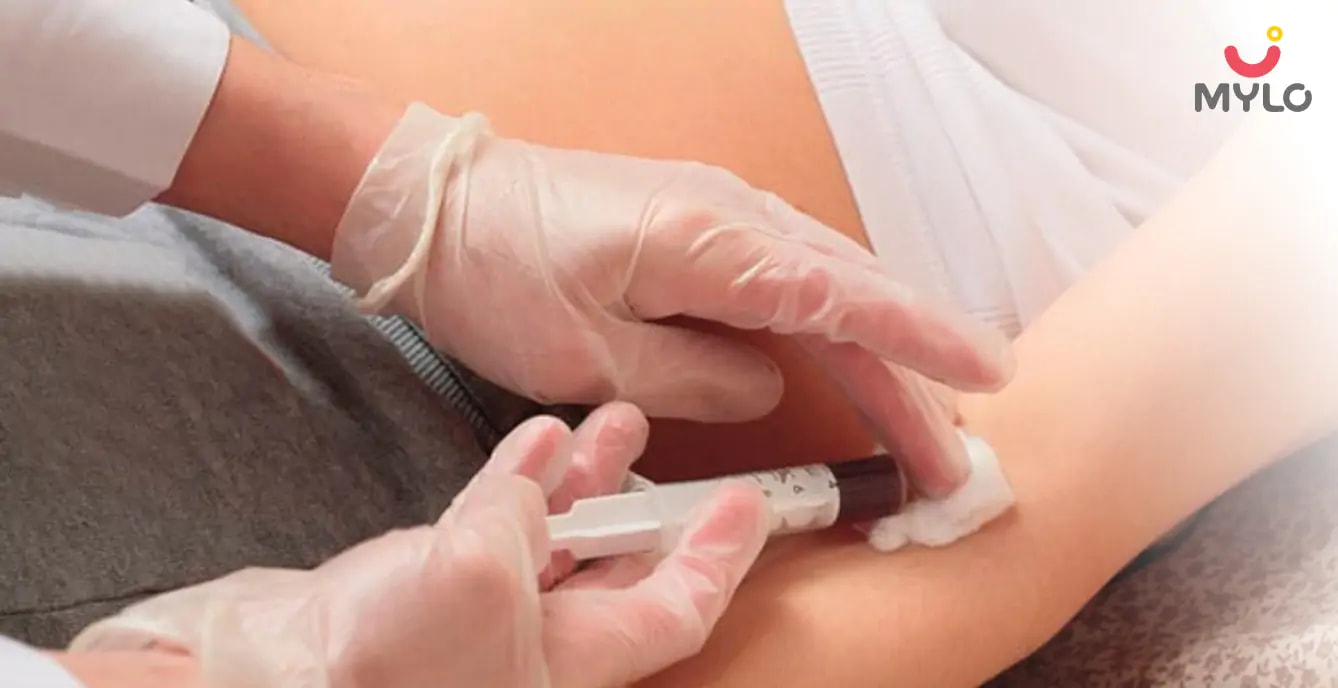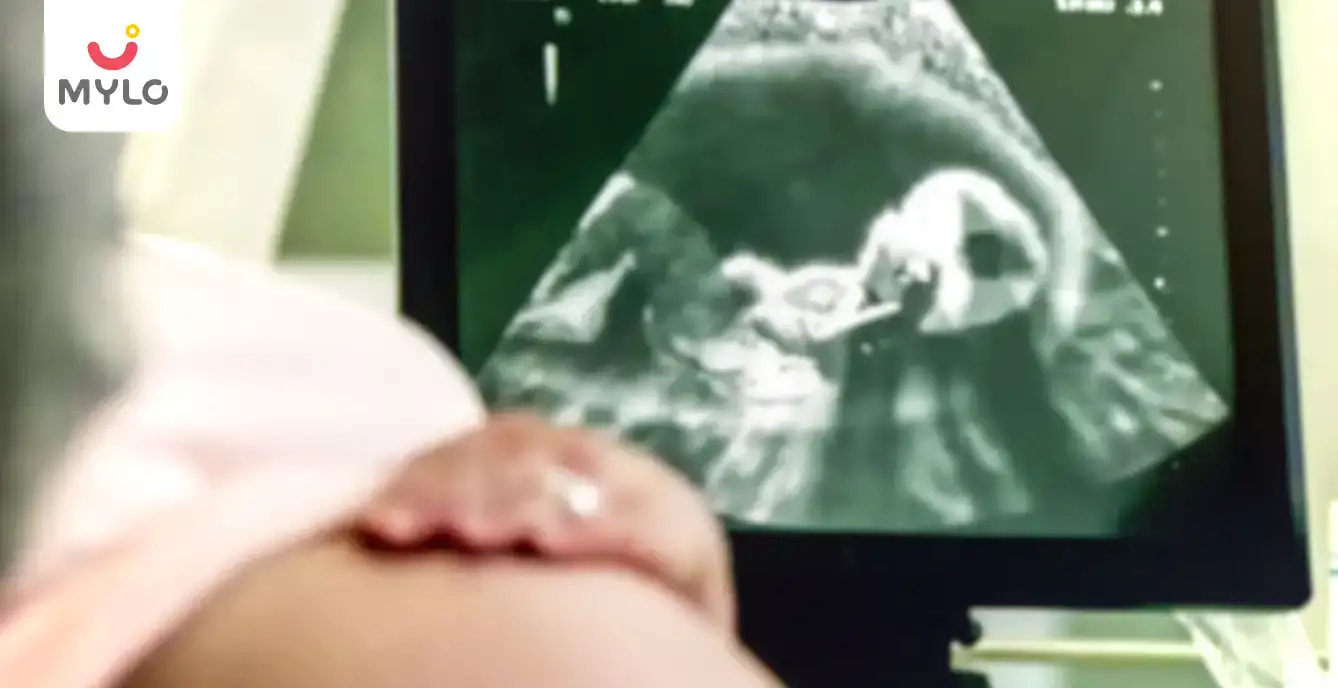Home

Scans & Tests

Screening for Down Syndrome in Babies
In this Article

Scans & Tests
Screening for Down Syndrome in Babies
Updated on 2 November 2022
Downs Syndrome is a birth disorder. The chromosomal arrangement that causes this syndrome takes shape at the time of conception itself.
When the genetic material from the egg and the sperm fuses together at conception, it forms bundles, which we call chromosomes. People with Down’s syndrome get an extra chromosome, which in turn affects their complete body.
People with Downs Syndrome face mild to severe learning difficulties and an array of health problems. Read on to find out more on this below.
Importance Of Screening For Down's Syndrome
According to researchers, one in every 1,000 babies in India is born with Downs Syndrome.
This chromosomal abnormality is very common and has long-term impact on the complete family. It is therefore, important that timely screening for this disorder is done during pregnancy, especially if the mother-to-be is over 35 years of age.
Screening and timely detection of the disorder enables families to make an informed choice about the way forward with the pregnancy. They can be given counseling so that the decision to keep or terminate the pregnancy can be taken without any guilt, based on their circumstances and personal abilities.
Tests done during pregnancy to detect Downs Syndrome
Tests to screen for Downs Syndrome are carried out on high-risk women in different stages. Some tests take place between the 10th to the 14th week of gestation while others are done in the 20th week of pregnancy.
Some common screening tests for Downs Syndrome include –
- Ultrasound Scan - The Nuchal Translucency (NT) scan
- Blood Tests – The Double Marker test
Tests such as ultrasounds and blood tests only tell you the risk of having a baby with a birth disorder.
More confirmed results come from diagnostic tests. These are –
- The Chorionic Villus Sampling (CVS) test
- Amniocentesis
Screening in the First Trimester
The following are the screening tests performed in the first trimester between the 10th to the 13th weeks of gestation.
1. The Nuchal Translucency (NT) scan
It is an ultrasound done to detect and measure the fluid accumulation at the back of the baby's neck. Excessive fluid indicates high risk of Downs Syndrome.
2. The Double Marker Blood test
It is done to find out the levels of hCG and Pregnancy Associated Plasma Protein (PAPP-A) in the pregnant woman’s blood. Incase a woman has conceived a baby who has Down's syndrome, the hCG levels come out very high while the PAPP-A levels in the blood are very low.
It is advantageous to get first trimester screening done. This is because, if the test results indicate the risk of your baby being born with Downs Syndrome, you can immediately proceed to get diagnostic tests done to get a confirmed report.
Alternatively, you can wait and get another round of screening tests done in the second trimester. However, this is usually not advised, as termination of pregnancy gets difficult and risky in the later stages.
High cost of the NT and Double marker tests is the only disadvantage of the first trimester screening tests. These tests work out to be very expensive.
Second trimester screening
Downs Syndrome screening in the second trimester involves blood tests. The tests are done between the 15th to 21st weeks of gestation. They aim to measure different markers in the blood of the pregnant woman to determine her risk of delivering a baby with Downs Syndrome.
There are three variations of blood tests available in India. These are –
- The Double Marker Blood Test: It measures only two blood markers including hCG and AFP
- The Triple Marker Blood Test: It measures three blood markers including hCG, AFP, and uE3
- The Quadruple Marker Blood Test: It measures all four blood markers including hCG, AFP, uE3 and inhibin A
The reports from a triple or quadruple screening test are made available within two weeks.
Most doctors suggest women to opt for integrated tests including the NT scan as well as the Triple Marker blood test for best and clear results. Incase detected with a baby with Down’s syndrome, it is the parent’s choice whether to proceed with the pregnancy or not. The decision is not an easy one either way. That is why there are support groups and counseling available to help one make an informed choice. It is helpful to talk to parents who have children with Downs Syndrome, as they understand what you are experiencing.
Managing a baby with Downs Syndrome
Caring for a baby with Downs Syndrome is a life long commitment and parents must be aware of what it entails. Even though you must treat the child as any normal baby, you must know that every baby with this disorder is different, with different health and developmental issues.
Babies with Downs Syndrome are most likely to have –
Physical issues related to –
- Breastfeeding or bottle feeding with difficulty sucking
- Hearing problems
- Heart Defects
- Vision related problems
Developmental issues related to –
- Motor skills - Delayed crawling, feeding, dressing, writing, or walking
- Language skills - Delayed talking and vocabulary build-up
- Social skills - issues with respect to manners, sharing, eye contact etc.
- Academic skills – issues related to reading, letter formation, retention, counting etc.
Early intervention, support, counseling, and therapy go a long way in managing children with Downs Syndrome positively. It is best to consult your doctor to know more about such resources available.
References:
1. Shiefa S, Amargandhi M, Bhupendra J, Moulali S, Kristine T. (2013). First Trimester Maternal Serum Screening Using Biochemical Markers PAPP-A and Free β-hCG for Down Syndrome, Patau Syndrome and Edward Syndrome. NCBI
2. Manikandan K, Seshadri S. (2017). Down Syndrome Screening in India: Are We There Yet?. NCBI



Written by
Ravish Goyal
Official account of Mylo Editor
Read MoreGet baby's diet chart, and growth tips

Related Articles
Related Topics
RECENTLY PUBLISHED ARTICLES
our most recent articles

Labour & Delivery
What Are the Causes and Different Stages of Prolonged Labor (Delayed Birth)?

Fun & Humour
Top 10 Action Series on Netflix

Getting Pregnant
15 Best Underrated Movies on Netflix

TV & OTT
Top 10 Most Trending Movies on Netflix

TV & OTT
10 Best Crime Series on Netflix

Lifestyle
10 Most Popular Series on Netflix
- 5 Most Popular International Movies on Netflix
- Top 10 Movies On Hotstar Premium
- The Top 10 Action Series Available on Hotstar
- Top 10 Short Moral Stories For Kids In English
- Top 10 Movies on Hotstar in Hindi
- How Safe Is It to Use Stand and Pee Device While Urinating?
- Children with White hair? What are the causes?
- Most Trending Human Web Series on Hotstar
- How Many Times Can You Use the Same Paper Toilet Seat Cover?
- Best Amazon Prime series in Hindi
- Best Horror Movies to Watch on Amazon Prime
- What to do if toddler hates bathtime?
- Top 5 Ways in Which Baby Toys Help in Your Little One’s Growth & Development
- Top 5 Natural Ways to Get Rid of Acne From Your Skin


AWARDS AND RECOGNITION

Mylo wins Forbes D2C Disruptor award

Mylo wins The Economic Times Promising Brands 2022
AS SEEN IN

- Mylo Care: Effective and science-backed personal care and wellness solutions for a joyful you.
- Mylo Baby: Science-backed, gentle and effective personal care & hygiene range for your little one.
- Mylo Community: Trusted and empathetic community of 10mn+ parents and experts.
Product Categories
baby carrier | baby soap | baby wipes | stretch marks cream | baby cream | baby shampoo | baby massage oil | baby hair oil | stretch marks oil | baby body wash | baby powder | baby lotion | diaper rash cream | newborn diapers | teether | baby kajal | baby diapers | cloth diapers |








